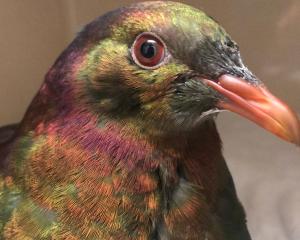The checkup was part of research being completed by Doc and University of Otago zoology PhD student Amelie Auge into the breeding, feeding and health of the Otago Peninsula population.
On Monday, six female sea lions were tagged by the team and it was hoped by the end of the week up to three more could be tagged.
The team also took the opportunity to weigh the pups born on the peninsula this season.
Five pups were believed to have been born, but only four had been found for weighing.
Miss Auge said she was concerned about one pup which had not come to the beach with its mother, who appeared to have an injured eye.
"It's all speculation, but she has been here for a day and a-half calling for it."
By weighing the pups, Doc was able to monitor their growth, which, in turn, it could relate back to the quality of nourishment they were getting from their mothers, she said.
"If the milk was not fat enough, the pups wouldn't [weigh enough]."
Research had shown the sea lions and their pups started to move more freely to other peninsula beaches between Kuri Bush and Shag Point about June, she said.
VHF trackers placed on sea lions for the past two years had shown the sea lions stayed around the Otago coastline for the whole year.
"They don't go anywhere, so the food must be nice the whole year round."
It was hoped the trackers placed on sea lions this year would tell Doc if they returned to the same places on the Otago coast from year to year.
Information from that would help with the management of sea-lion habitat along the coast, she said.






